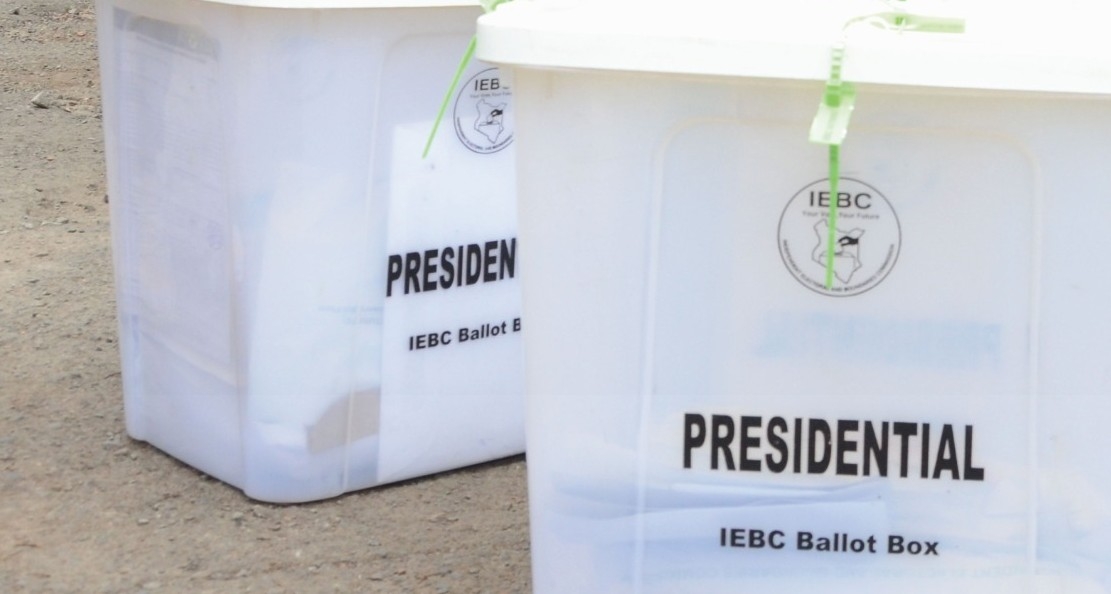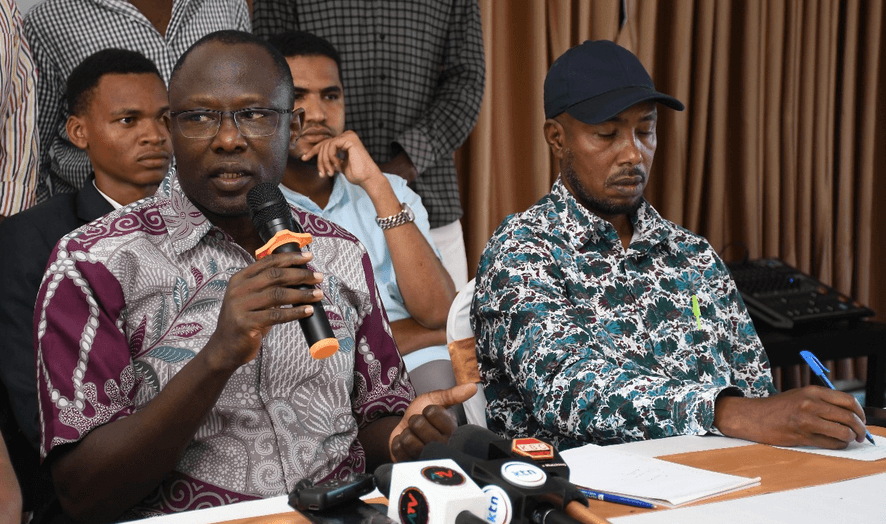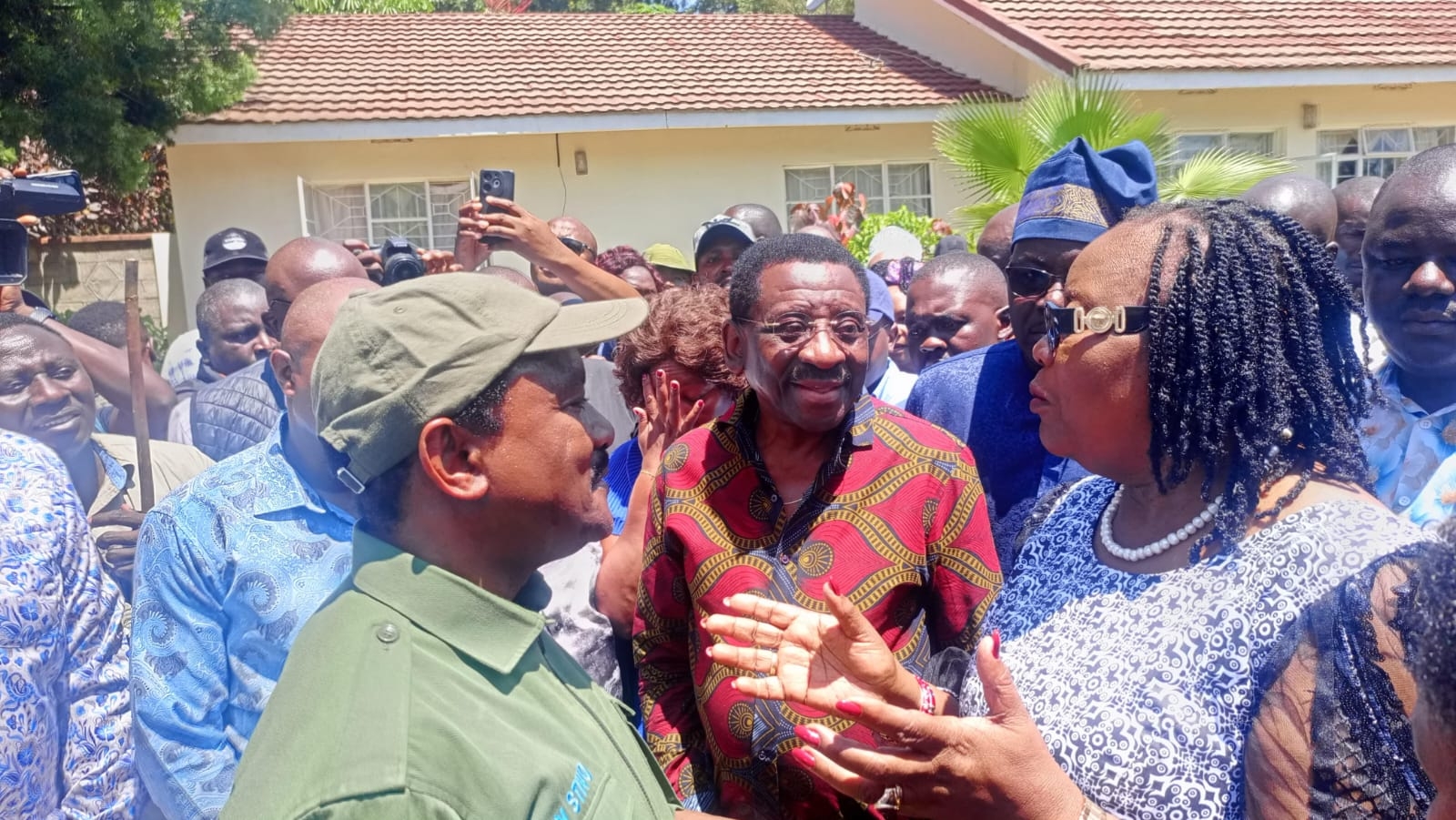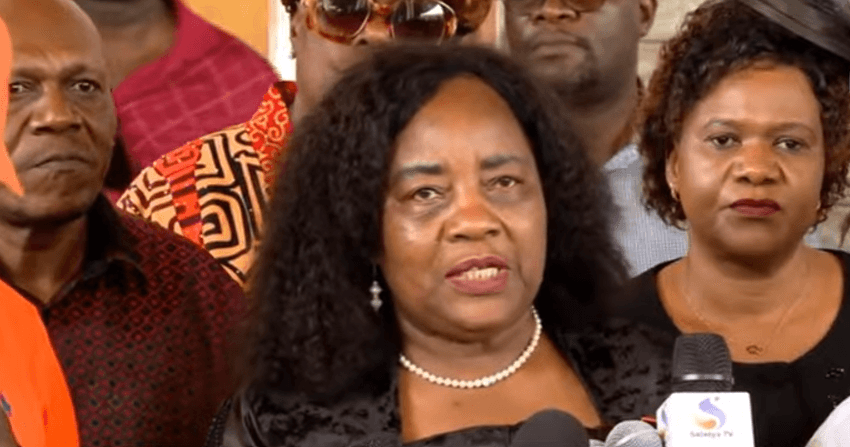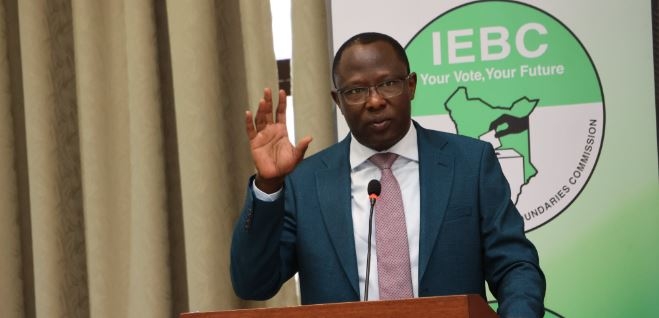
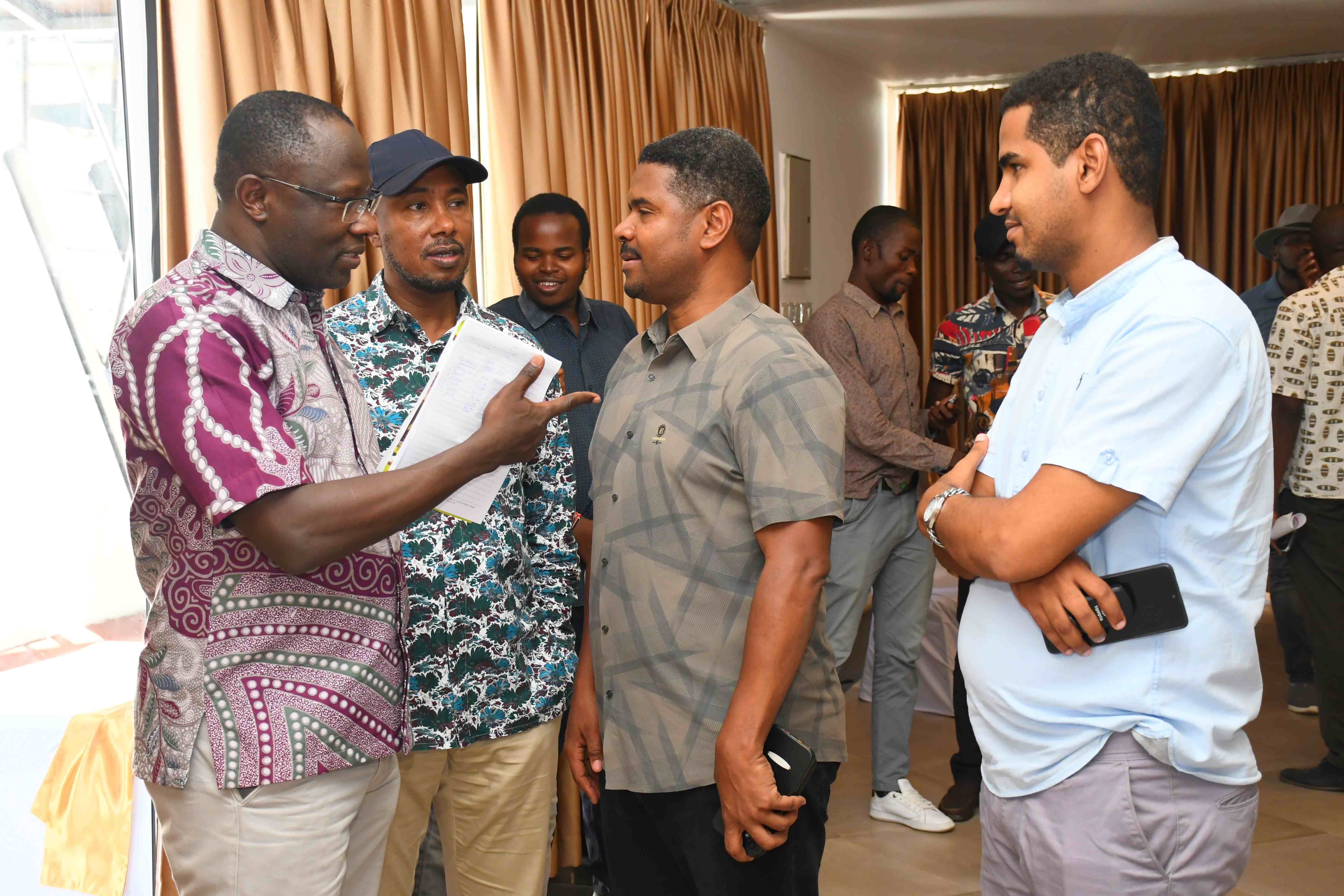
IEBC chair Erastus Ethekon, CEO Hussein Marjan and Vocal Africa’s Hussein Khalid and Walid Sketty in Mombasa on November 4, 2025 / BRIAN OTIENO
Politicians are fuelling the voter apathy being witnessed across the country, especially among the youth, the electoral commission has said.
The Independent Electoral and Boundaries Commission on Tuesday accused some politicians of making reckless statements that create the impression elections are predetermined and that votes do not count.
Chairperson Erastus Ethekon said such utterances discourage young people from registering and participating in elections.
“The careless rhetoric by some politicians makes it seem like certain people will win no matter what, insinuating rigging plans,” Ethekon said.
“That is irresponsible and meant to make citizens lose confidence in our electoral systems.”
He emphasised that Kenya’s electoral system is “so watertight that rigging is impossible,” citing robust checks and balances.
During a youth training and sensitisation forum in Mombasa, Ethekon said the commission is open to working with youth groups and civil society to restore confidence in the process.
“We need to tell our story—not let politicians control the narrative,” he said at the forum, which was organised by Amnesty International in partnership with Vocal Africa.
“If we allow that, people will lose faith in institutions and the result will be protests and violence.”
The chairperson expressed concern over the sluggish pace of the ongoing continuous voter registration exercise (CVR), launched on September 29.
Five weeks later, only 90,020 new voters have been registered nationwide against a target of 6.8 million.
In Mombasa, just 3,976 new voters had been registered by Monday evening, against a target of nearly 183,000 by 2027.
He attributed the low numbers to limited access to registration centres since only constituency offices were opened during the CVR.
“The distances between the various locations and our offices could be far,” Ethekon said.
Youth leaders echoed the concern.
Tom Kazungu from Kisauni said many young people cannot afford transport to registration centres.
“Most of us do not have jobs, so we can’t even think of paying fare just to register,” he said, urging IEBC to bring services closer to communities.
In response, Ethekon said after the November 27, by-elections, IEBC will roll out mass voter registration, moving centres to wards and neighbourhoods to improve access.
CEO Hussein Marjan also decried the youth’s indifference toward voting.
“If you don’t take control of your voice through registration and participation, you lose your chance to make change,” Marjan said.
“The only way your voice can be heard is through the ballot, not fighting in the streets.”
Vocal Africa’s Walid Sketty said insecurity in Mombasa may also deter registration, as some youth fear election-related violence.
He urged Gen Z to seize their “opportunity for change” by registering to vote.
Lewis Oguba, a performing artist from Changamwe, said many youth have lost faith in the system.
“They ask why they should vote when they see no change and believe their votes will be stolen,” he said.
Activist Asha Mapenzi from Kisauni called for more resources to reach out to youth and emphasise the power of the ballot.
Another youth, Tracy Masela from Bombolulu, said the lengthy and frustrating process of acquiring national ID cards has discouraged many potential voters.
Hussein Khalid, executive director at Vocal Africa, noted the problem is particularly severe at the Coast and in the North Eastern regions, where youth struggle to obtain IDs.
“It can be used to disenfranchise local communities,” he said, urging IEBC to push the National Registration Bureau to speed up issuance.
Ethekon said the commission will engage the bureau and roll out voter education to boost trust and participation.
He assured Kenyans that voter transfers will only be done in person to prevent manipulation by politicians who previously collected IDs and altered polling stations without consent.
“The old practice has stopped. Voters must now be physically present to validate transfers using biometrics,” he said.
Instant analysis
The IEBC’s warning over political rhetoric underscores growing concern about voter apathy, particularly among the youth, as Kenya gears up for the 2027 elections. Chair Erastus Ethekon’s remarks expose a deeper credibility crisis facing the electoral system—one driven more by perception than fact. While the commission insists rigging is impossible, persistent claims by politicians have weakened public trust. The low turnout in the ongoing voter registration, especially in urban areas like Mombasa, signals disengagement and disillusionment. Unless IEBC and partners counter this narrative with aggressive civic education and easier registration access, youth voter participation may remain dangerously low.


